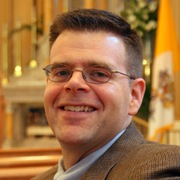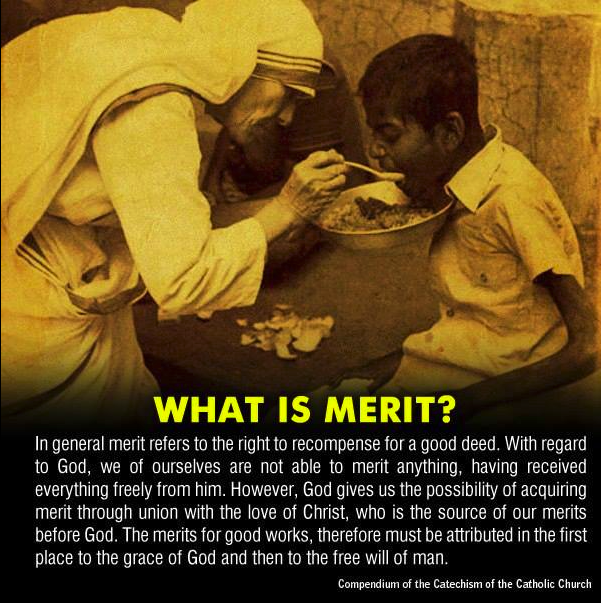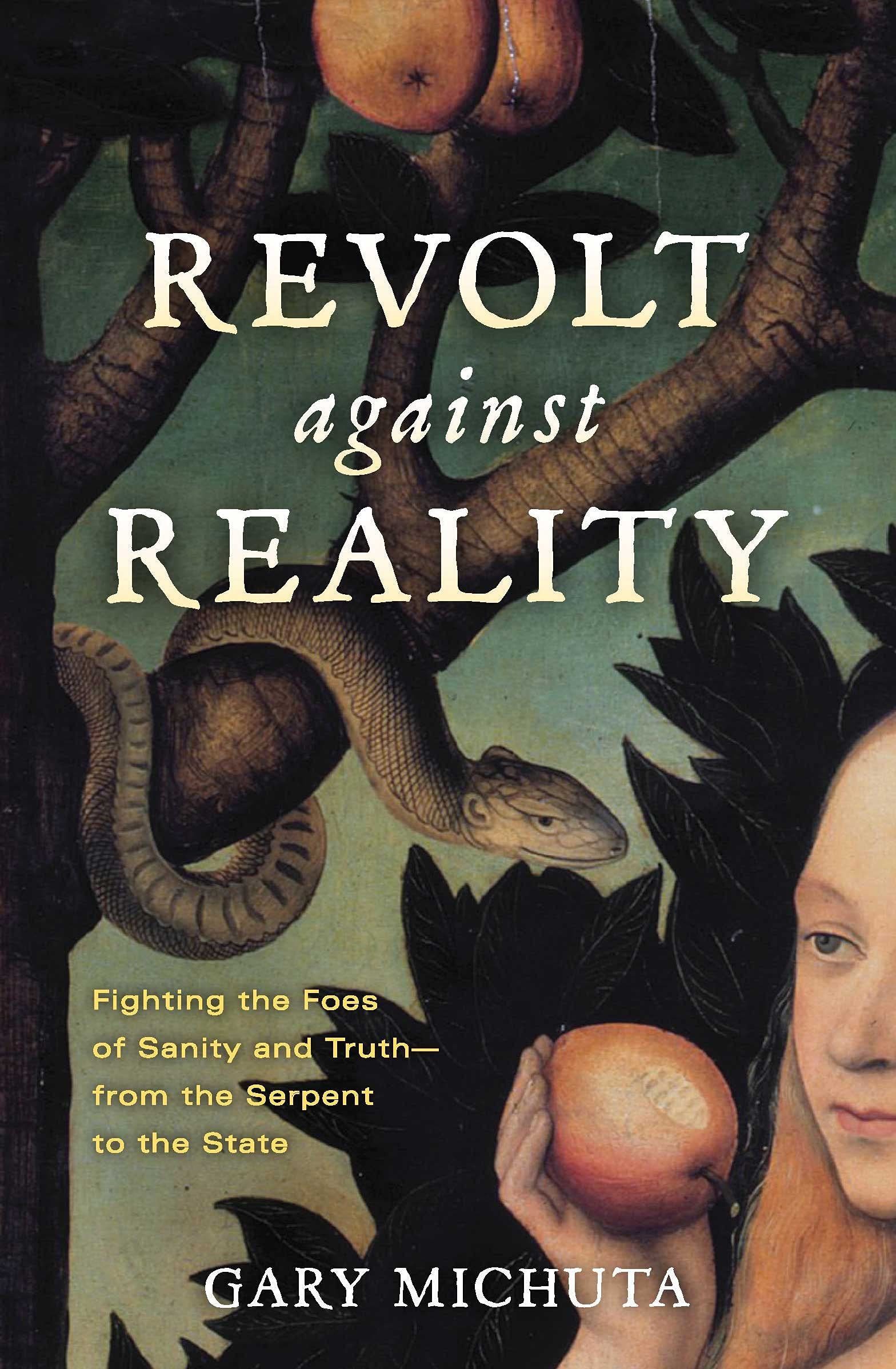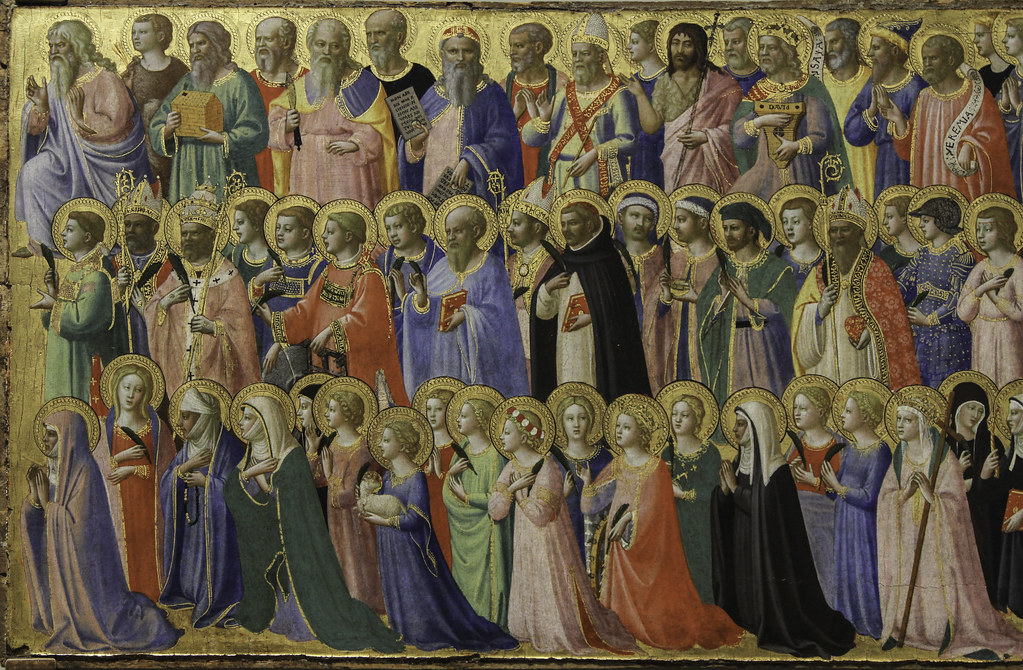
-by Baroque Painter Jacques Blanchard’s Saint Jerome was made in 1632 and the original painting is in Museum of Fine Arts, Budapest. The original size of the work is 145,5 x 116 cm and is made of oil on canvas., please click on the image for greater detail
-by Jaspreet Singh Boparai
“…We know quite a bit about (Jerome’s) life because he couldn’t help discussing it at length, in letters, treatises, commentaries and even the introductions to his translations of the Bible. The Catholic Church not only recognised him as a saint: it declared him to be one of the four first Latin-language Doctors of the Church.
His learning and intelligence were quite literally legendary. In the Middle Ages Jerome was said to have once been lecturing to students in Bethlehem when a lion approached. His students fled in terror; he saw that it was limping and removed a thorn from its paw. Thereafter he was followed everywhere by a tame pet lion. The story has never really been believed, at least among the learned; but the lion has been associated with Jerome as a symbol ever since. Perhaps this reflects certain aspects of his personality: you read his writing and cannot help but think, A saint? Him?

-Penitent Saint Jerome, Bernardino Luini, 1525 (Museo Poldi Pezzoli, Milan, Italy).
Saint Jerome of Stridon
Saint Jerome (AD 331–420), the man who translated the Bible into Latin, was born at Stridon in Dalmatia during the reign of Constantine the Great (r. 306–37). His home, and at least some of the family estates, appear to have been destroyed by invading Goths in 379.
Jerome’s parents were Christian, but did not bother to have him baptised. They insisted on speaking Latin at home, although they lived in the provinces. Later in life Jerome would complain of continuing to remember stray vocabulary from his “barbarous native language”, including the name of the unappetising beer that was brewed both locally and in the neighbouring province of Pannonia. Jerome appears to have learnt enough of the local Illyrian dialect to shout at peasants and slaves.
In a letter (AD 382) he admits that during his childhood and early youth he had been a glutton for luxurious food; he considered this to be the most difficult vice to drop when he chose to adopt a more ascetic manner of living.

-Saint Jerome in His Study, Albrecht Dürer, 1514 (Kupferstich-Kabinett, Dresden Castle, Germany).
Jerome in Rome
Jerome’s parents sent him to Rome to be educated under the famous schoolmaster Aelius Donatus, who remains well-known as the author of grammatical textbooks, as well as literary commentaries on the works of Terence and Vergil that summarise a great deal of earlier scholarship.
Donatus trained his pupils thoroughly according to his own fastidious literary tastes. Although his own prose has been described as dry, bland and wholly colourless, he at least had strong opinions about what good writing should be. From Donatus, Jerome acquired a passionate devotion to strict grammatical correctness.
Having left the school of Donatus at around the age of sixteen, Jerome began his formal rhetorical training. He appears to have thrived, relishing every available opportunity to challenge his fellow students to debates, which he treated as verbal duels. Later in life he would remember with pleasure how carefully he groomed himself at this point in his life, particularly when preparing to deliver practice orations in front of his rhetoric master.
Jerome appears to have been destined early on for a career at the Bar. He frequented courts of law, and mastered all the legal materials and techniques of argument that were to feature so frequently in his many writings, particularly where he threatened to sue his opponents. He never formally studied philosophy, but memorised many philosophers’ names, often in the original Greek.
As a student in Rome, one of Jerome’s greatest pastimes involved copying library books, as a relatively inexpensive means of creating a library of his own. He also bought many books, but many hours were spent writing out copies of his own in this way. The library that he began to build would never leave his side, even when he later retired into a cave; this handwritten collection would develop into one of the most important private libraries of his day, when Roman literary culture was already beginning to shrivel and decay.

-Saint Jerome, Leonardo da Vinci, 1483 (Vatican Museums).
“Have mercy on me, a sinner”
Books were not his only pleasure. During this period Jerome appears to have indulged in a range of unspecified activities which later caused him to be disgusted with himself; these are not catalogued in any of his later writings in which he castigates himself for his corrupt adolescence and early manhood. His most specific autobiographical description of the period describes the young Jerome as “befouled with the squalor of every type of sin”.
Jerome’s occasional lapses of self-mastery affected much of the course of his life. During a period of enforced self-isolation he was afflicted by powerful visions of sins that he thought he had abandoned, many of which appear to have involved saltatrices (dancing girls). In a letter to his friend Pammachius (AD 393) he admitted that if he exalted virginity to the skies, it was in admiration of what he had lost. Self-recrimination features in much of his correspondence.

-Saint Jerome in the Desert Tormented by Memories of Dancing Girls, Francesco de Zurbarán, 1639 (Royal Monastery of Santa Maria of Guadalupe), please click on the image for more detail
Jerome appears never to have endured a phase of petulant disbelief even as a teenager; he was not a baptized Christian, however, until his mid-twenties (or possibly even his early thirties). Yet he was evidently drawn to the religion of his parents. In his Commentary on Ezekiel he records his Sunday habit of visiting the tombs of all the Apostles and Martyrs in Rome with a small group of fellow students. The darkness in the crypts was total; the heat, humidity and terrifying blackness reminded them of the line from Psalm 55:
Let death seize upon them, and let them go down quick into Hell: for wickedness is in their dwellings, and among them.
In Jerome’s own translation:
Veniat mors super illos, et descendant in infernum viventes: quoniam nequitiae in habitaculis eorum, in medio eorum.
The friends also remembered the latter part of the second book of Virgil’s Aeneid, and Aeneas’ frantic night-time stumbling through the burning ruins of Troy:
horror ubique animo simul ipsa silentia terrent.
(Aeneid 2.755: “Dread from every side fills my heart, whilst the very silence causes alarm.”)
Jerome leaves Rome
In 367 AD, Jerome and his childhood friend Bononus settled together by the “half-barbarian banks of the Rhine”, likely in the imperial city of Trier. During this period Jerome had much leisure to continue augmenting his library, although Trier does not appear to have been a centre of learning. He was already thirty-six years old.
In this “ghastly backwater” Jerome had leisure to observe what he considered the “primitive customs”, “clumsy language” and “unappetising food” of various Germanic tribes. He never forgot his first sight of the Attacotti, uncouth natives of Ireland, who sometimes ate human flesh, and had a taste for the buttock-meat of stolen livestock – they never seem to have acquired the skill of animal husbandry for themselves. The Irish “savages”, as he described them, were probably on display in captivity at the imperial residence.
According to Saint Augustine, Trier unexpectedly became an early centre of monasticism at around this time. The movement allegedly began when a pair of bored imperial courtiers stumbled (perhaps literally) over a copy of Saint Athanasius’ Life of Saint Antony of Egypt, a hagiographical account of how an illiterate holy man became the first Christian hermit. Athanasius’ work made the life of a monk appear highly attractive to the two courtiers. They settled in a hut outside the city walls of Trier and began to attract followers.
It is unknown whether the two courtiers mentioned by Augustine are Bononus and Jerome. If so, someone else must have taken over the monastery, because Jerome left Trier to visit his family in Stridon.
He had not been home in years. His younger sister, now in her early teens, was conducting herself in a manner which led him to describe her as “wounded by the devil” and “spiritually dead”; this led to a protracted quarrel with Jerome’s maternal aunt Castorina. St Jerome’s relationship with his parents cooled. He was also disenchanted with the Christian community at Stridon, describing it as boorish, rustic, greedy, materialistic and led by a bishop (Lupicinus) who was admirably suited to such a degraded people, whom he led in the manner of a blind man leading other blind men into a pit, as in the Biblical parable (Matthew 15:13-14).
Jerome pressured his sister to take religious vows, possibly at the convent in nearby Emona, and ended up breaking permanently with most of his extended family. Leaving home forever, he visited the city of Aquileia (near Venice). Bononus came with him; his old classmates Rufinus and Heliodorus were already there. The trio decided to settle together to form a sort of informal monastery (as it were).
The bishop of Aquileia appealed greatly to Jerome. There were many energetic Christian reformers in the city; they did not compromise on doctrine, dogma or the importance of orthodoxy. Jerome congratulated the bishop on cleansing the city of heresy. Pious ascetics were more than welcome in Aquileia. Among Jerome’s new friends was Paul, who was almost a hundred years old, and also had an extensive collection of books, many of which Jerome copied out himself.

-Jerome in his study, Colantino, 1445/6 (National Museum of Capodimonte, Naples, Italy).
Unknown adversaries
In 373, a crisis erupted. In letters Jerome complained of being relentlessly hounded by an unnamed enemy. Doors slammed shut in his face. We do not know why his reputation was so suddenly blackened, though he appears to have done something shocking, offensive and completely unforgiveable in the eyes of the community of nuns at Emona. They never replied to his letters begging their forgiveness, and pleading that they not judge him too hastily or give ear to malicious gossip. In at least one letter he admitted that he had done wrong and had to ask for their pardon.
Jerome and his three friends were compelled to leave Aquileia and go their separate ways. Rufinus sailed away to Egypt; Bononus became a hermit on a rocky island in the Adriatic; Heliodorus went on pilgrimage to Jerusalem. Jerome decided to make his way to the Holy Land as well. They all appear to have had a distinctive motivation for leaving; the others’ reasons appear to have been unconnected to the scandal that drove St Jerome away from his new home.
Disillusioned and bitter, Jerome resolved to take his library with him into the wilderness. He would spend the rest of his life as a penitent ascetic near Jerusalem. But first he would make a tour of the East. He stopped in Antioch at the home of his friend Evagrius, a rich and influential priest, and ended up staying for over a year.
His health had suffered during his journey; he spent part of his convalescence studying Aristotle with a private tutor. But he fell into a state of mental and spiritual turmoil, torn by conflicting desires, and wracked by vacillation and remorse. He still enjoyed pagan literature, and knew he remained susceptible to pleasures of the flesh; he felt too unworthy and sinful to isolate himself as a hermit, or join a community of holy monks.

-The vision of Saint Jerome, Louis Cretey, mid-17th century (private collection, France).
The vision
At Lent 374 AD, while bedridden with a wasting illness, he had a terrible nightmare, which he later recounted in a letter (Epistle 22, to Saint Eustochium, section 30). In the dream he was dragged before a tribunal. A bright light blinded him. The Judge asked him what he was. “A Christian,” he replied. “Liar!” the Judge retorted. “You follow Cicero, not Christ – your heart lies where your treasure is.” The judge ordered him to be flogged. St Jerome was tormented more by guilt than by the lashes of his torturer, and cried out for mercy. Bystanders interceded, pleading on his behalf for mercy, begging that he be allowed a chance to mend his ways. He swore an oath:
“Domine, si umquam habuero codices saeculares, si legero, te negavi.”
“Lord, if ever again I possess worldly books, or read them, I shall have denied Thee.”
He was released.
Jerome woke up. His back and shoulders were swollen, and covered with welts and bruises.
For at least a decade Jerome kept his promise and refused to read pagan literature. Of course he had already memorized his favorite Classics long since. Eventually he found means of modifying, then drastically reinterpreting, his oath; despite his promise, he appears not to have dispersed a single volume of his book collection.
When he had fully recovered from his illness, Jerome revised his plans: instead of making a pilgrimage to Jerusalem he would join the hermits in the Syrian desert. He pressured his friend Heliodorus to join him. After long, sometimes fraught discussions, he managed to drive Heliodorus back to Italy, then went to the desert alone.
The desert
The solitary hermits of the desert were not really solitary. Near Chalcis the barren landscape teemed with gangs of cave-dwellers and hermits, most of whom were dirty, uneducated and eccentric. They wore squalid garments made of hair, ate raw herbs and sometimes loaded their bodies with chains. One hermit was said to have lived for thirty years on a diet of barley bread and stagnant muddy water. Another kept himself alive in an abandoned cistern with a diet of five dates a day. The hermits wanted to subdue their bodies, break their own wills and crush every last carnal impulse. To that end they reduced all eating and drinking to a minimum, and deliberately made their sleep difficult. This was how they atoned for their sins and brought themselves closer to God.
Jerome’s hermit-cave was not entirely unfurnished. Although he slept on the bare earth, and sought to discipline his rebellious body by reducing it almost to a skeleton, he was still capable of receiving and entertaining regular visitors, including his friend Evagrius. Also, he brought his entire library with him to his cave, and employed several assistants to copy out books for him. He had leisure to teach himself the rudiments of Hebrew. There appears to have been at least one private tutor in his entourage.

-Saint Jerome writing, Caravaggio, 1606 (Borghese Gallery, Rome, Italy).
In the desert Jerome’s correspondence was more extensive than ever; he wrote a great many letters asking for the forgiveness of those he had offended, and attacking those who would not forgive him. He concluded a long note to his aunt Castorina by warning her that if she continued to refuse to reply he would consider himself absolved of all wrongdoing. For all his desire to leave the world and the temptations of society, Jerome appears to have hated being alone. The fires of lust had not been extinguished either. Nobody wanted to join him in the desert – not even the friends to whom he wrote elaborate letters praising the ascetic life and its spiritual joys.
During the winter of 376/7, Jerome began to realise that he was unpopular among the hermits in the surrounding desert. He wrote a letter to Pope Damasus complaining about the acrimonious disputes about the Trinity into which he had been dragged by neighbouring hermits, who had the gall to question his orthodoxy. Jerome was particularly exasperated by how quarrelsome everybody else was. The entire Eastern Church seemed to him chaotic, self-contradictory and needlessly argumentative. Everybody he spoke to wanted to engage in a shouting-match about Christian doctrine. Pope Damasus’ reply is not recorded.
A few months later, Jerome wrote another, shorter letter to the Pope. His mood had not improved. Now he felt more persecuted than ever. The nameless adversary who had relentlessly pursued him in Aquileia continued to hound him; three separate Christian factions wanted to claim him as their own; his neighbours among the desert monks had become a menace. He found himself the target of threats, abuse and insinuations; his life as a solitary hermit was becoming intolerable. His many enemies were trying to silence him, which was why he wrote so many lengthy letters. Evidently somebody wanted to get rid of him; he and his team of copyists and his private Hebrew tutor no longer felt welcome among the hermit community in the desert. Pope Damasus’ reply is not recorded.
Jerome had lost all his illusions about monks, and began publicly to condemn their hypocrisy and arrogance, particularly after he returned to Evagrius’ house in Antioch before Easter 377. He stayed for another year, licking his wounds whilst enjoying Evagrius’ hospitality.

-Saint Jerome in his study, Domenico Ghirlandaio, 1480 (Church of Ognissanti, Florence, Italy).
Retreat from the desert
This second extended period in Antioch was fruitful: Jerome produced his first major literary work in Latin, a biography of a hermit whom he claimed as the real founder of Christian monasticism, twenty years before Saint Antony of Egypt. The book evidently alienated not only Jerome’s former neighbours in the desert but also Evagrius, who had written a noted biography of Saint Antony of Egypt. Jerome also began to gain renown as the author of controversial pamphlets. Evagrius asked him to leave.
Jerome arrived in Constantinople at the beginning of 379. He claims to have become a disciple of Saint Gregory of Nazianzus, bishop of Constantinople; though he is nowhere mentioned in Gregory’s voluminous corpus of surviving writings, even in passing.
At Constantinople Jerome embarked on his career as a literary translator, beginning with the Chronicle of Eusebius of Caesarea, the bishop who has long been regarded as the father of Church history. Jerome’s translation included numerous editorial interjections meant to correct the original work, bring it up to date, or else simply share the translator’s own opinions and knowledge with the reader. It is a mark of this translation’s qualities that it was popular in areas of Mediaeval Europe that remained untouched by the Renaissance.
Jerome was not so much a historian as an enthusiastic lister of facts, not all of which were judged critically for accuracy, veracity or relevance to the subject at hand. His historical essays are distinguished by the author’s loyalty to personal friends, and extensive revelations of Jerome’s preferred opinions, preoccupations of the moment and fluctuating emotional state. Occasionally the tone is inexplicably violent.
Incessant reading and translation nearly blinded Jerome. His eyesight suffered further due to a shortage of stenographers. In the aftermath of the Gothic invasion of Stridon in 379, Jerome’s family temporarily cut off his allowance. He was forced to carry out his own copying for some time.

-Saint Jerome, Christoph Paudiss, 1656/58 (Kunsthistorisches Museum, Vienna, Austria).
The joys of bureaucracy
In 382 Jerome accompanied Paulinus, Bishop of Antioch, to Rome. Back in the Eternal City he had the opportunity to meet many of the figures to whom he had been writing frequent long letters; these included Pope Damasus himself. The Pope decided to put him to work as a papal secretary.
Jerome thrived as a bureaucrat. He found a great deal of spare time for personal projects: the Pope was over eighty, and encouraged his new secretary to spend as much time as possible distracting himself on his own. It was Pope Damasus’ idea to encourage Jerome to go off and translate the entire Bible into serviceable Latin, preferably in a monastery somewhere. Before starting that project in earnest, Jerome decided to improve on existing ‘Old Latin’ translations of the New Testament.
Jerome’s improved versions of the Gospels led to howls of protest. He responded by describing his critics as “two-legged asses” who preferred to lap up muddy rivulets when they could have drunk, as he did, from the pellucid fountain of the Gospels’ original Greek. This was his way of criticising their mastery of Latin as well as Greek: the ‘Old Latin’ translations of the New Testament were poorly written even by the standards of Late Antiquity. Whilst Jerome did not think highly of St Paul or the Evangelists as prose stylists (none, after all, had been educated by Donatus) at least they were superior to the uncouth early Christians who had first tried to render these texts into Latin. Jerome began to amass further enemies in some number.
During this sojourn in Rome, Jerome became intimate with a small circle of aristocratic Christian widows, whom he encouraged in their tendencies towards strict asceticism. His most devoted follower was Saint Paula of Rome, one of the very richest women in the Empire at the time. Her daughter Blaesilla had been seriously ill; Jerome encouraged her to take on strict ascetic discipline; she died. Saint Eustochium, Paula’s other daughter, managed in the end to live almost as long as Jerome did.

-Saint Paula with Saints Eustochium and Jerome, Francesco de Zurburán, 1638/40 (National Gallery of Art, Washington DC, USA).
For the first time in his life, Jerome was fashionable, and much sought-after, if only by old women in mansions. He often had influence over their daughters as well. Certain pious young women began to receive inordinately elaborate letters encouraging them to rigorous chastity and self-mortification – there were dangerous desires and appetites to repress and suppress. One of Jerome’s most inspired rhetorical performances of the period is addressed to a wealthy teenage virgin, whom he strongly encourages in chastity with repeated warnings about the temptations of lust. These are described with great variety and imagination. Not long after writing this letter he was forced to leave Rome.
Pope Damasus died on 11 December 384. With his main patron out of the way Jerome was open to scrutiny by his enemies, who began to investigate his relationships with his various devout lady-followers. The Church opened an inquiry into his activities. Jerome was eventually acquitted; his name was fully cleared; but he was now less celebrated than ever, having declared Rome as the great harlot arrayed in purple and scarlet that had appeared in the visions of St John at Patmos (Revelations 17.1-6).
Farewell to Rome
Even as he stood on the deck of the ship that would take him from Rome’s port at Ostia to Jerusalem, Jerome was seen dictating a long, vehement letter of self-defence to one of his richer widow-followers. Several of his pious lady-friends decided to accompany him to Jerusalem, including Paula and Eustochium. The precise size of his entourage is unknown, but they appear to have had a large ship to themselves; their luggage included Jerome’s entire library.
Jerome and his entourage spent a year touring the Holy Land; they stopped for a month at Alexandria so that Jerome could listen to the lectures of the blind theologian Didymus, who had been a pupil of the vegetarian teetotaller Origen, who was later regarded as a heretic. Rufinus had also studied with Didymus, though for rather longer.
Paula and Eustochium would never leave Jerome’s side; they built a monastery for him outside Jerusalem, with an extensive library to house all his books. The convent that they built for themselves had at least fifty nuns; Jerome’s monastery retained considerably fewer long-term residents.
Jerome’s old friend Rufinus had established a monastery of his own by the Mount of Olives. He too had a wealthy widow to support his activities: his patron was Saint Melania the Elder. Both men’s monasteries copied out books; Rufinus’ subordinates often found themselves employed to expand St Jerome’s library even further.

-Saint Jerome and the lion, Rogier van der Weyden, 1450 (Detroit Institute of Art, MI, USA).
Bursts of activity
Jerome was not necessarily suited to the role of Abbot; he was particularly exercised by the need to be hospitable to foreigners. Even so, he was remarkably prolific in Jerusalem. Paula was a much more reliable source of income than his family. He began to compose commentaries on individual books of the Bible to supplement his continuing translations. His commentaries feature numerous frank descriptions of those who had offended him, or challenged his opinions. The commentaries on St Paul’s Epistles are a particularly rich resource for data on the personal habits of bishops whom he regarded as unsuitable for their duties.
During this period of unprecedented creativity Jerome took it upon himself to compile authoritative reference works on subjects that he had recently introduced himself to; his collection of Hebrew etymologies is limited in its application, though inventive in its way, and features a notably low proportion of invectives directed against now-forgotten contemporaries. This work inspired him to begin translating the Old Testament into Latin directly from Hebrew, without reliance on the Greek Septuagint (itself of the 3rd century BC) as an intermediary text or starting-point, except where strictly necessary.

-Saint Jerome in his study, Antonello da Messina, 1475 (National Gallery, London).
Jerome began this work in 390; he announced that he had completed the task in 392, though he overestimated the speed of his progress by fourteen years or so. These Bible translations were circulated book by book, and evidently caused widespread consternation throughout the Church, a fact to which Jerome draws attention in the often-vituperative prefaces to his versions of Samuel, Isaiah and the Psalms in particular.
Jerome’s most celebrated original work, De viris illustribus, is a chronological catalogue of 135 distinguished Christian writers beginning with Saint Peter (who died between AD 64 and 68) and ending with Jerome himself. An influential friend of whom we know nothing is said to have pressed Jerome to write this.
While defective from a scholarly point of view, and in some respects utterly reprehensible, De viris illustribus is illuminating on the subject of Jerome himself, even by the general standards of everything he wrote. He held an unusual number of men in contempt, including Saint Ambrose of Milan; that said, this work is generally less overtly libellous than his pamphlet on Christian chastity from this period. The tract caused considerable embarrassment to Jerome’s remaining friends in Rome. Whilst it is in places shockingly crude and coarse, Jerome was surprised to learn that it outraged many readers and added to his collection of enemies.

-“St. Jerome,” from the workshop of Marinus van Reymerswaele, ca. 1489 – ca. 1546, oil on wood, height, 101 cm (39.7 inches), width, 129 cm (50.7 inches), Swedish Nationalmuseum, please click on the image for greater detail
Controversies and strife
Around the beginning of 393, Jerome began to fall out, first privately, then publicly, with his old friend Rufinus. The origin of the dispute is itself disputed, although Jerome’s derogatory remarks extended beyond Rufinus himself to Melania as well as the local bishop, who eventually tried to retaliate by having Jerome and his monks expelled from Palestine by imperial command. But the minister instructed to carry this instruction to the Roman administration was stopped outside Constantinople and cut to pieces by a Gothic general (27 November 395).
Multiple attempts at mediating the conflict failed. Jerome published a blistering attack on the bishop, ridiculing him on personal as well as doctrinal grounds (January 397). Yet the bishop refused to be drawn into the controversy. In the end, Melania engineered a reconciliation on Easter Sunday 397; Jerome and Rufinus were forced to shake one another by the hand and declare that all had been forgiven. Both men were so humiliated that their mutual resentment only grew deeper. After a quarter-century in the Holy Land, Rufinus decided to leave the monastery that Melania had built for him, and moved back to Rome.
Rufinus had not intended to renew hostilities from Rome. But for whatever reason he decided to produce an expurgated Latin translation of one of Origen’s more hotly disputed texts, toning down or leaving out passages that might have outraged many faithful Christians. Why Rufinus felt compelled to translate this work in particular has never satisfactorily been explained. He tried to cover himself by insinuating in the preface to his translation that Jerome, as a former student of the blind Didymus, was more than friendly to Origen’s ideas. Jerome’s reaction was perhaps predictable.
-Saint Jerome in his study, Pieter Coecke van Aelst, 1530; Walters Art Museum, Baltimore, USA).
The ugly and protracted scandal that surrounded Origen’s work at the end of the fourth century was based to a great degree on Church politics. Pope Anastasius I (r. 399-402) was not well-read in theology, although even he could see that there were theological problems in Origen’s work; he decided to end the dispute by condemning Origen and all his current followers.
Rufinus blamed Jerome for vindictively spreading rumours about his unorthodox opinions, claiming that he was not a heretic but a mere innocent literary translator producing a controversial text purely for the sake of the intellectually curious who did not have the Greek to read Origen’s original work. He noted that even Jerome himself had praised – and indeed translated – Origen. This was not wise. Jerome was not instantly provoked; but inevitably he would respond.
Rufinus laboured for two years on his Apologia against Jerome, which circulated widely from 401. Whilst lacking in dialectical verve, the pamphlet was highly effective. It made extensive use of documents, evidence and common-sensical logic. But the reply, the two-book-long Apologia against Rufinus, appeared at great speed even by Jerome’s usual standards. This was a brilliant polemic, displaying a relatively cool control of tone that is without parallel in Jerome’s oeuvre. The perpetual sneer of mild contempt, and the only occasional descent into slanging, demonstrate an artistic discipline of which Jerome had hitherto rarely seemed capable.
Penitent Saint Jerome, Albrecht Dürer, 1496 (National Gallery, London).
Some months later, Jerome felt compelled to add a third book to the Apologia against Rufinus. Rufinus regarded this as even more violently insulting than the previous two books, despite Jerome’s announcement in the preface that he had decided to refrain from abusing his opponent, citing St Paul’s reminder (Romans 12.19ff.) that a Christian ought not to seek revenge. On these grounds, he instructed the reader not to consider all the criticism of Rufinus’ wealth, mendacity, cowardice, pedantry, literary incompetence and so on, to be merely vengeful. Jerome thought that old men should not invent calumnies against the elderly, in the way that thugs slander gangsters, whores slander prostitutes and buffoons slander clowns.
For all the apparent poison and vitriol, Jerome held out what was, by his standards, an olive branch to his lifelong friend. But in the wake of this addition to the pamphlet a reconciliation was unlikely. In response, Rufinus tried to maintain a dignified silence. Jerome continued to denounce and ridicule his former friend even after he was dead.

-Saint Jerome at prayer, Orazio Gentileschi, late 16th century (Museo Civico d’Arte Antica, Turin, Italy).
The end of anger
In 404, Paula died, having consumed her entire vast fortune. Eustochium was left with crippling debts; another patron was urgently needed to save his monastery and Eustochium’s convent from starvation. Meanwhile, Alaric the Visigoth was terrorising the Empire; Ostrogoths and Vandals invaded and pillaged Italy as well as Gaul. Jerome was terrified: he understood just how difficult it would be from now on to solicit donations for his monastery.
In a letter of 407 Jerome counselled a wealthy Dalmatian, Julian, whose family had been brutally wiped out by invaders, to respond to all these tragic deaths by stripping himself of all possessions and remaining property and embracing Christ-like poverty. Similar appeals are found throughout his surviving correspondence from the period.

-The last communion of Saint Jerome, Giambattista Tiepolo, 1732/3 (Staatsgalerie, Stuttgart, Germany)
Throughout the last dozen or so years of his life, Jerome relied increasingly on Origen’s work as an aid to producing commentaries. Not because he necessarily agreed with what he found in Origen; on the contrary he was fuelled by a desire to contradict and deride Origenism. Origen’s errors obsessed him, and not merely because they provided a convenient vehicle for proxy attacks on Rufinus, who died in Sicily in 412, much to his former friend’s openly-expressed satisfaction. Jerome’s few remaining friends in Rome were militantly anti-Origenist. This too does not explain his fanatical monomania, and late-life animus against a writer who died eight decades before his birth.
From around 414 onwards, Jerome began a campaign of aggression, the last of his life, against the “menacingly effeminate” heretic Pelagius, who was as simperingly passive-aggressive as St Jerome was active-aggressive. Within a few years Pelagian teachings would be declared heretical. But Jerome’s literary warfare was interrupted in 416 when his monastery and the convent of Eustochium were attacked and set on fire by a mob of hooligans. Monks and nuns were brutally assaulted; one deacon died in the violence. The attackers were thought to be uneducated lay Christians who were attracted to Pelagius’ message.

-Saint Jerome writing, Caravaggio, 1607 (Co-Cathedral of Saint John, Valletta, Malta).
Jerome’s library was destroyed in the fire. He personally blamed his old enemy the Bishop of Jerusalem for enabling this attack, and doing nothing to stop it when it was going on. The Pope agreed with Jerome, and sent a blistering, humiliating rebuke to the bishop. But Jerome was shattered by the attack. His health rapidly declined. So did Eustochium’s. She died on 28 September 420; Jerome died two days later, on 30 September, in his ninetieth year.
Jerome prayed all his life to be released from his great vice of anger. He was, if only in death. Let his life stand as the ultimate proof that quite literally anybody can become a saint.”
“Martyrdom does not consist only in dying for one’s faith. Martyrdom also consists in serving God with love and purity of heart every day of one’s life.”
-St. Jerome
“Read assiduously and learn as much as you can. Let sleep find you holding your Bible, and when your head nods let it be resting on the sacred page.”
-St Jerome
“The best advice that I can give you is this: Church traditions are to be observed in the form in which previous generations have handed them down.”
-St. Jerome
Love,
Matthew
































